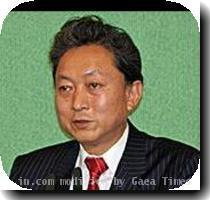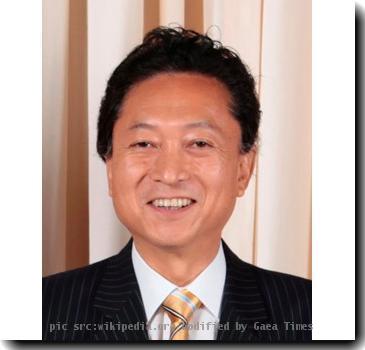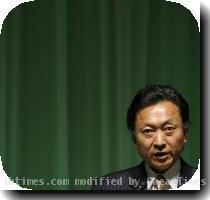Govt panel confirms Cold War-era ’secret’ pacts between Japan and US, ending long denial
By APTuesday, March 9, 2010
Japan confirms Cold War-era ’secret’ pacts with US
TOKYO — Japan confirmed Tuesday secret Cold War-era pacts with Washington that tacitly allowed nuclear warships in Japanese ports in violation of a hallowed postwar principle, effectively acknowledging that previous governments had lied about them for decades.
While the move was welcomed as a step toward greater government transparency, atomic bomb survivors expressed disgust that officials kept such agreements hidden for dozens of years.
The revelations came after an investigation by a panel of experts appointed by Prime Minister Yukio Hatoyama’s government, which swept to power last fall on promises to bring more openness to government. His left-leaning party defeated the long-ruling conservatives who repeatedly denied the existence of such agreements.
The findings themselves aren’t much of a shock because declassified U.S. documents have already confirmed such 1960s agreements, and a few former Japanese bureaucrats have spoken out about them in recent years.
But in a nation where memories of the atomic bombs dropped on Hiroshima and Nagasaki at the end of World War II drive a fierce aversion to nuclear weapons, Tokyo’s admission about the secret agreements is a stunning reversal after years of denials from government authorities.
Sunao Tsuboi, who survived the Hiroshima bombing on Aug. 6, 1945, was outraged by the findings, saying they reflected the government’s past hypocrisy.
“While stressing that Japan is the only country attacked by atomic attacks, the government was secretly allowing nuclear weapons inside the country,” said Tsuboi, a co-chair of a nationwide organization for atomic bomb survivors.
Nagasaki Mayor Tomihisa Taue called the government’s past behavior deceitful.
Even after American officials acknowledged the pacts in the 1990s, leaders of the ruling Liberal Democratic Party persistently denied them, up to and including Taro Aso, the last LDP prime minister before Hatoyama’s Democratic Party of Japan took over.
The six-member panel of academics examined more than 4,000 files and documents surrounding four pacts, and confirmed three existed.
Most controversial was the finding that past governments had given tacit permission to U.S. nuclear-armed warships to make calls at Japanese ports — a violation of Japan’s so-called three non-nuclear principles not to make, own or allow the entry of atomic weapons.
The panel, led by University of Tokyo professor Shinichi Kitaoka, said that while documents showed that Washington and Tokyo appeared to have differing interpretations about allowing nuclear-armed ships into Japanese waters, it was likely that Tokyo and Washington shared an unspoken understanding permitting them to make port calls in Japan without consent.
The panel also acknowledged that Tokyo and Washington had secret agreements allowing the U.S. to use military bases in Japan without prior consent in case of emergency on the Korean Peninsula during the Korean War.
Foreign Minister Katsuya Okada told a news conference the findings shouldn’t have any impact on Tokyo’s ties with Washington, which are currently strained over a dispute about the relocation of a Marine base on the southern island of Okinawa.
Under a security alliance with the U.S., some 47,000 American troops are stationed in Japan, and the U.S. protects the country under its nuclear umbrella.
The investigation, Okada said, was meant to restore public trust in Japan’s diplomacy and government policies.
“It’s regrettable that such facts were not disclosed to the public for such a long time, even after the end of the Cold War era,” he said.
Political experts said the move could spur further steps to increase openness in Japan’s government and bureaucracy.
“It’s a good thing for Japanese democracy, given that the previous governments have been telling blunt lies to the public,” said Koichi Nakano, a political science professor at Sophia University in Tokyo. “This is a push toward more openness.”
A few bureaucrats had begun to speak up about the agreements in recent years. One Foreign Ministry official, Kazuhiko Togo, interviewed by The Associated Press a few months ago, said that he and other high-ranking officials kept quiet for fear that disclosure of the agreements in the 1960s — when anti-American sentiment was much stronger — would trigger riots and perhaps topple the prime minister.
“The political costs were too great,” Togo told the AP.
Former Prime Minister Shinzo Abe said in a nationally televised interview Tuesday that he was not informed of any secret pacts from his predecessor.
“The investivation should not be used to blame officials who made such decisions, and I hope it would help improve Japan’s security in the future,” he said.
Associated Press writer Mari Yamaguchi and Yuri Kageyama contributed to this report.


